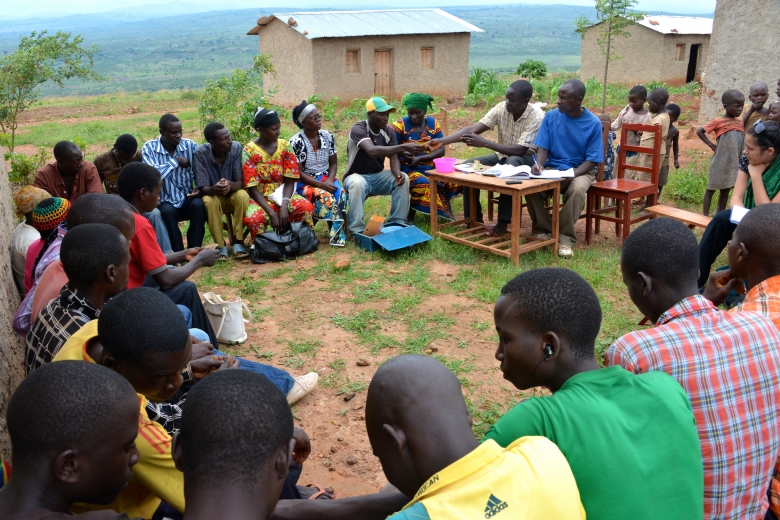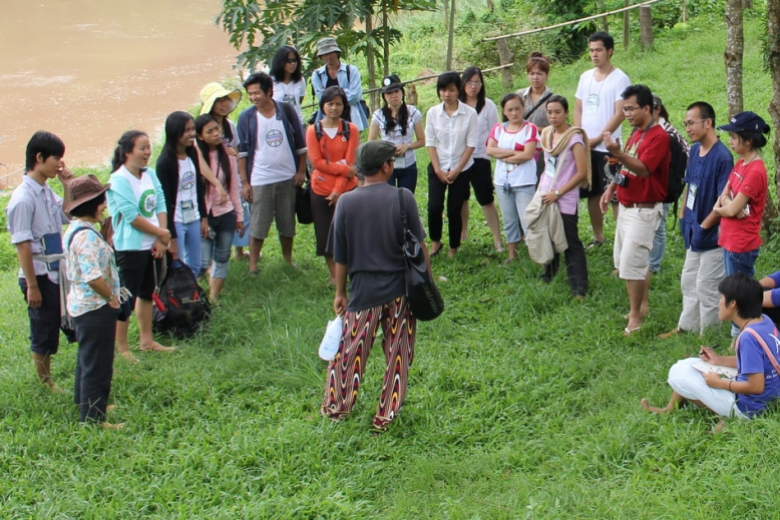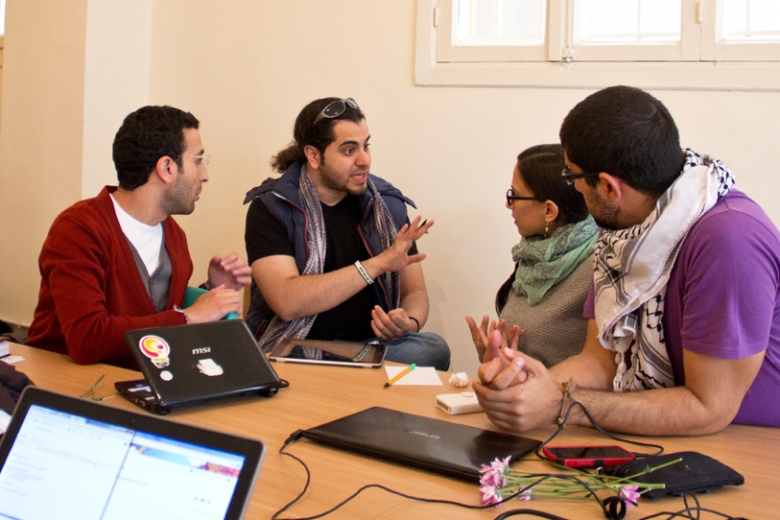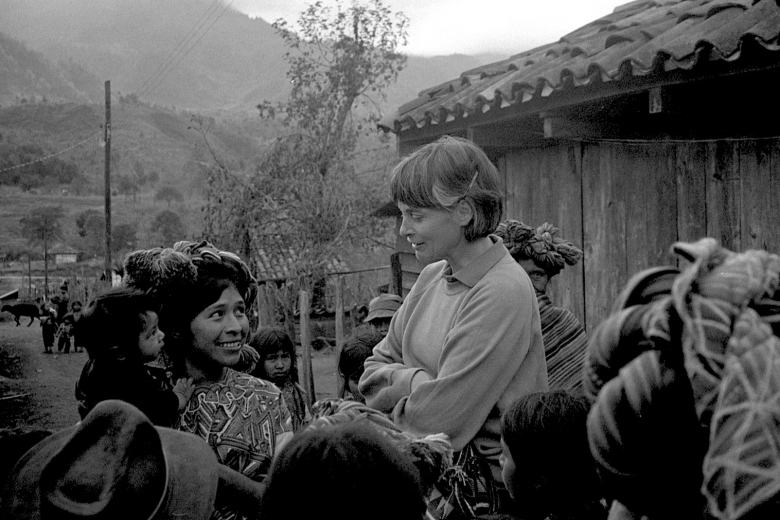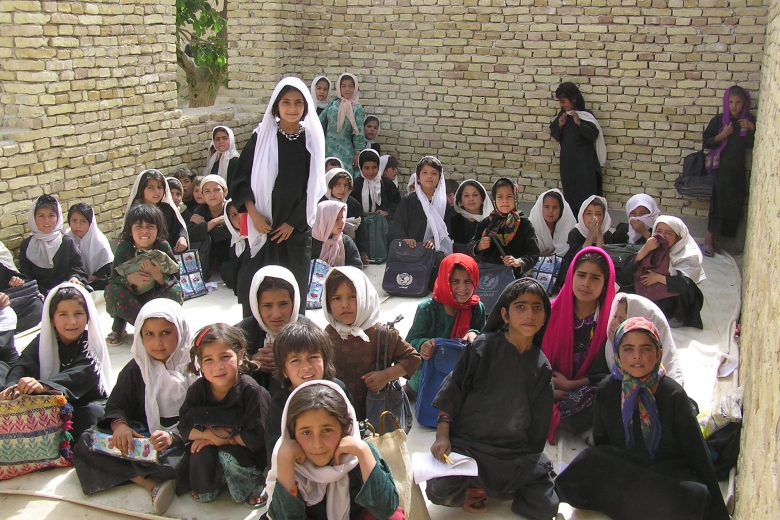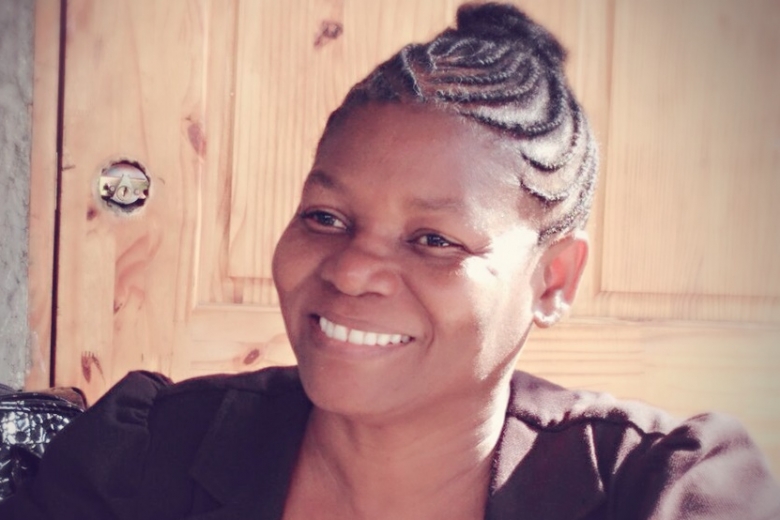
In the beginning of 2010, I was working as a teacher in a public school for girls. Before this, I worked as nurse in the Cardinal Leger Hospital in Leogane for nearly 20 years. That was why, after the earthquake, I began working in the Parc Gerald Christophe camp as a nurse volunteer. As a member of a medical team, I provided first-aid and other care to those who had been wounded during the earthquake.
It was while working there that Ivan Monzon of AFSC contacted me. He wanted to know about the living conditions in the camp and needs of people in the area. When I met him, I explained about our new reality. I told Ivan that everyone in Leogane was extremely traumatized by what had happened; people had lost family and friends and did not know how long they would have to continue to live in these conditions. Many had become homeless when their homes were destroyed; this was my case and I had just finished paying off my house. There were no jobs, no businesses running, and no schools operating. It was a time of great worry and anxiety for everyone.
A few months later, Ivan returned with a short-term project, which included psychosocial, citizen participation, as well as peacebuilding and conflict transformation training. My responsibilities initially involved identifying key leaders who should participate in the training sessions, including local authorities, camp leaders, and CBO leaders. At that point, he invited me to join AFSC’s team and I began gaining more experience on peacebuilding in the community.
During our psychosocial training, we learned a lot about human resilience. It was the first time I had seriously thought about these concepts. This allowed me to discover many things about myself. I realized that in my life, I was resilient because I had somehow learned to accept whatever situation I was in. I strongly believed that my life was a gift and with it, I could help others to trust that things could be better again. I would encourage people, to always be positive, no matter the circumstances.
I learned how I could get people to get more involved in community actions so that they could help rebuild their communities by working together. I also learned about different notions of conflict transformation and peacebuilding aspects. Using the tools I learned I was able to share information with the camp leaders and their family, as well as religious groups and schools on how to positively co-exist and begin to understand each other. I was able to work with communities to learn to use non-violent communication to help deescalate conflicts. By working with community leaders, we used conflicts to find solutions to real problems, like access to water, housing or education.
Now it is 6 years since earthquake, and our program is still relevant because AFSC’s program builds partnerships within communities. It recognizes that conflict transformation does not happen in a short period of time; programs need to be developed in ways that respond to situations that are constantly evolving. In Haiti, there are structural conflicts, intense political/social conflicts where youth are manipulated to use violence to further outside interest. We have seen that conflicts in our communities quickly escalate and it is difficult to predict what may spark violence.
AFSC has developed experience with 14 community-based organizations (CBOs), in three urban communities (Martissant, Cite Soleil, and Croix des Bouquets). I realized that AFSC is playing a pivotal role using this approach and the development of local peace networks (LPNs), especially working with the youth and the Schools for Peace. Our work consists of identifying the root causes of conflicts and finding a way to address these issues towards positive peace with “actions oriented towards peace”.
When I speak to the leaders in the communities where we work, they express to me the importance of our program on different levels. In terms of dialogues with key people in their communities—local authorities, notables, and other leaders—they say it tightens the connections between them and creates bonds that did not previously exist. Through dialogue they can build a common vision for their communities and find solutions in common. Because of their training and because the LPNs are based in the communities where we work, they are in the best position to identify the roots of the conflicts and find ways to address them.


